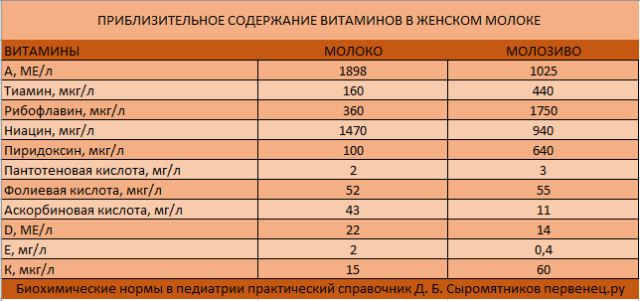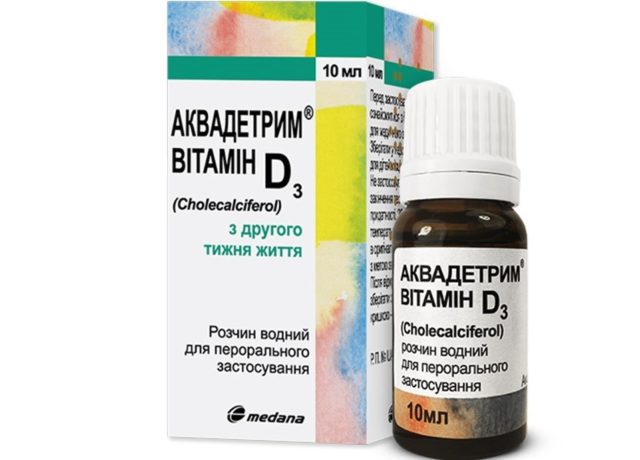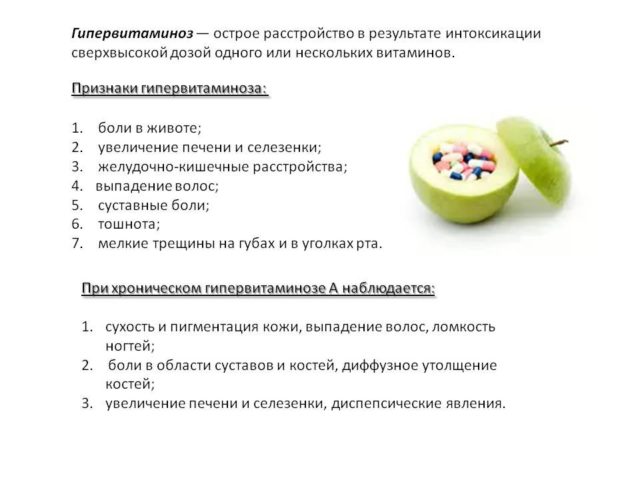Content
- 1 Why is vitamin deficiency in newborns dangerous?
- 2 List of vitamins for newborns
- 3 What vitamins are in breast milk
- 4 What vitamins should be given to newborns
- 5 The best vitamin complexes for newborns
- 6 How to take vitamins for babies
- 7 Precautions
- 8 Contraindications and side effects
- 9 Pediatrician recommendations
- 10 Conclusion
In the first year of life, the baby is actively growing and developing. A small body needs a variety of nutrients to form fully. But breastfeeding or bottle feeding may not be enough to get them. In such cases, special vitamins are prescribed for newborns.
Why is vitamin deficiency in newborns dangerous?
Trace elements are vital for any person. They are found in enzymes, hormones and other biologically active substances. At first glance, the daily need for useful components is not great, because their amount is measured in milligrams. But the problem is that many of them are not produced by the body, but taken with food.
But the baby in the first 6 months is completely breastfed or artificially fed. Therefore, not all substances enter the growing organism. Because of this, micronutrient deficiencies may develop. And this is already dangerous for the growth of the baby in the future, especially when it comes to signs of a lack of vitamin D.
This trace element takes part in the formation of bone tissue. Cholecalciferol improves the absorption of calcium and phosphorus. With its deficiency, the child has severe skeletal lesions. One of the most common diseases is rickets. A child's bones become fragile and easily deformed. In complicated cases, the risk of spontaneous fractures increases.
To identify micronutrient deficiencies, you need to pay attention to several signs of vitamin deficiency. The main symptom is considered to be slow weight gain, poor growth and developmental delay.

Also, doctors distinguish other symptoms in the form of:
- untimely teething;
- baby anxiety;
- pallor of the skin;
- increased sweating;
- sleep problems;
- the appearance of muscle cramps.
List of vitamins for newborns
Children in the first year of life need a lot of trace elements, because their body is still going through the stages of formation.
The list of essential vitamins for newborns includes:
- Retinol... Responsible for active growth, good vision, condition of the skin and mucous membranes. The daily dosage is 1250 IU.
- Vitamin D... Takes part in calcium-phosphorus metabolism. Makes teeth and bones strong. It is necessary for those babies who suffer from diabetes mellitus, rheumatism, heart defects and problems with the thyroid gland. A child's body should receive 300 IU per day.
- Vitamin C... Needed for immunity. Responsible for the health of connective tissue and the elasticity of the vascular walls. A newborn needs 30 mg per day.
- Vitamin B1... Takes part in metabolic processes. Makes the nervous system stronger, normalizes the digestive tract.
- Vitamin B2... Converts energy, participates in protein, carbohydrate and fat metabolism.
- Vitamin B6... Responsible for the state of the hematopoietic system.
- Vitamin PP... Essential for comfortable digestion.
- Alpha-tocopherol... Normalizes the work of the myocardium. Strengthens the walls of blood vessels and capillaries. Helps other vitamins to be absorbed.
- Vitamin K... Needed for blood clotting.

Small children need minerals - iron and magnesium for the full functioning of the body.
What vitamins are in breast milk
Many parents believe that there is not enough nutrients in breast milk. Therefore, various adapted mixtures are connected. But this opinion is wrong. In fact, the composition of mother's milk is enriched with trace elements necessary for the baby. It consists of special proteins that help the milk to be fully absorbed. There are not enough nutrients in the adapted mixture, therefore it is digested worse.
The trace elements and vitamins in breast milk are as follows:
- Retinol... This trace mineral is especially important for premature babies. Due to its lack, babies have problems with the work of the digestive tract. Therefore, a nursing mother should consume eggs, liver, butter, carrots and parsley.
- Alpha-tocopherol. Takes part in metabolic processes. The greatest amount of vitamin E is found in colostrum.
- B vitamins... These trace elements are found most of all in products of animal and plant origin. Therefore, a nursing mother should eat more meat products. If a woman adheres to vegetarianism, then she needs to drink special drugs.
- Vitamin C... In order for its amount to be normal, you need to eat a lot of vegetables and fruits.
- Vitamin H... Required for skin health. Restores the normal structure of the cover, takes part in metabolic processes.

An adapted blend usually contains 15 vitamins, as well as minerals in the form of folic acid, choline, niacin, biotin and inositol.
What vitamins should be given to newborns
Most often, parents are advised to give newborns vitamin D. This substance is produced independently when the body is exposed to ultraviolet rays. But from September to April, the child is less on the street, which means that there is a lack of vitamin D.
At the same time, as a prophylaxis, infants are given calcium and ascorbic acid. Only with this combination of trace elements, the baby's skeletal system begins to form correctly.
If blood tests show a low level of hemoglobin, then the baby is prescribed iron supplements. As soon as the baby begins to give complementary foods, meat dishes and buckwheat porridge are included in the diet.
Parents often complain about their baby's restless behavior. The reason for this phenomenon is considered to be hypertonicity of muscle tissues and immaturity of the nervous system. Then the baby needs magnesium.
Vitamin A is given to support immunity, restore the skin and mucous membranes, and the normal functioning of the visual organ. Also, this trace element is necessary for those children who have poor growth gains.
If the baby is artificially fed, then no additives should be given to him. The mixture contains all the substances necessary for the body. In the future, he will receive useful components from food.
The best vitamin complexes for newborns
Most often, vitamins for newborns are prescribed in drops. They can be spoon-fed, mixed with breast milk, formula, or water.The drugs are given for prophylaxis at a certain period of time or when there are signs of deficiency and the development of a pathological process.
Aquadetrim
A solution containing vitamin D. The daily dose for babies is 1-2 drops. If there are signs of prematurity, then the amount of the drug is increased to 3-5 drops.

Vigantol
A preparation with vitamin D. Analogue of Aquadetrim, only has an oil base. The drug rarely causes allergic reactions, does not provoke problems in the functioning of the nervous system, but it is harder for a small organism to absorb.

Multitabs Baby
A multivitamin complex, which includes retinol, vitamin D and ascorbic acid. Often, doctors prescribe a complex for the prevention of rickets and strengthening the body's defenses during the period of viral infections.

Watering Baby
The dietary supplement consists of retinol, ascorbic acid, vitamin D and PP, group B and alpha-tocopherol.

How to take vitamins for babies
A newborn needs to drink vitamins only after consulting a doctor. The independent use of dietary supplements can lead to an overdose of trace elements and a deterioration in the general condition.
Before buying, parents need to make sure that the complex is intended for children under one year old. If the drug is selected incorrectly, it will lead to intoxication of the body.
It should be remembered that part of the vitamin D is produced when the skin is exposed to sunlight. Therefore, solutions should not be given in the summer. Drops are prescribed in autumn, winter and spring.
It is better to give drops in the morning after a meal.
Up to 6 months, babies have enough vitamins that they receive from breast milk or an adapted formula. Therefore, dietary supplements are prescribed only if there are signs of deficiency.
Precautions
Doctors are of the opinion that bottle-fed children need ascorbic acid more than others. To make up for the lack of vitamin C, it is not necessary to give complexes. It is enough to include fruit and vegetable purees in the diet.
It is forbidden to prescribe drugs on your own. This should only be done by a doctor, based on complaints from parents and analyzes. Dietary supplements should not be given for prophylaxis. Their reception is necessary at a certain period of time.

Contraindications and side effects
Not all babies can be given drugs.
There are a number of contraindications in the form:
- allergic reactions to active and auxiliary substances;
- manifestations of symptoms of hypervitaminosis;
- individual intolerance to certain vitamins;
- the presence of malignant or benign formations;
- acute tuberculosis;
- urolithiasis;
- problems in the digestive tract.
While taking dietary supplements, the baby may experience side symptoms. This process is accompanied by:
- frequent regurgitation;
- decreased or lack of appetite;
- the appearance of skin rashes;
- feeling of thirst;
- rapid breathing.
The child becomes irritated or, conversely, lethargic. Having trouble sleeping.
If any adverse reactions occur, visit your doctor and stop using supplements.
Pediatrician recommendations
Pediatricians, whose experience exceeds 10-15 years, always prescribe medications with calciferol to their patients, but not all babies need drops. Before you start taking dietary supplements, you must ask for a referral for a biochemical blood test. If this is not done, an overdose will occur.
She is accompanied by:
- thirst and dryness of the tongue;
- sleep problems;
- alternating constipation and diarrhea;
- abdominal pain;
- nausea and vomiting;
- decreased appetite;
- headaches;
- mood swings;
- pain in muscles and joints.
Dr. Komarovsky does not deny the benefits of micronutrients. But he advises to take them only if there are symptoms of vitamin deficiency. He explains his point of view by the fact that the baby receives useful substances from mother's milk. Therefore, so that there is no deficiency of trace elements, mom should eat greens, vegetables, fruits, meat and cereals.
Children who are bottle-fed do not need to give dietary supplements unnecessarily. They usually contain at least 15 vitamins and 10 minerals. In addition to all this, such babies are given complementary foods earlier, which also contain useful substances.
If we talk about vitamin D, then it is imperative to take drops from September to April. With the onset of summer, it is necessary to spend more time outdoors, because it is ultraviolet rays that promote the synthesis of vitamin D in tissues.
Conclusion
Vitamins for newborns should not be purchased without consulting a doctor. Usually babies get useful trace elements from their mother's milk or formula. Taking dietary supplements is necessary if there are signs of vitamin deficiency. The decision on the prescription of drugs is made by the doctor based on the complaints of the parents and the general condition of the baby.

